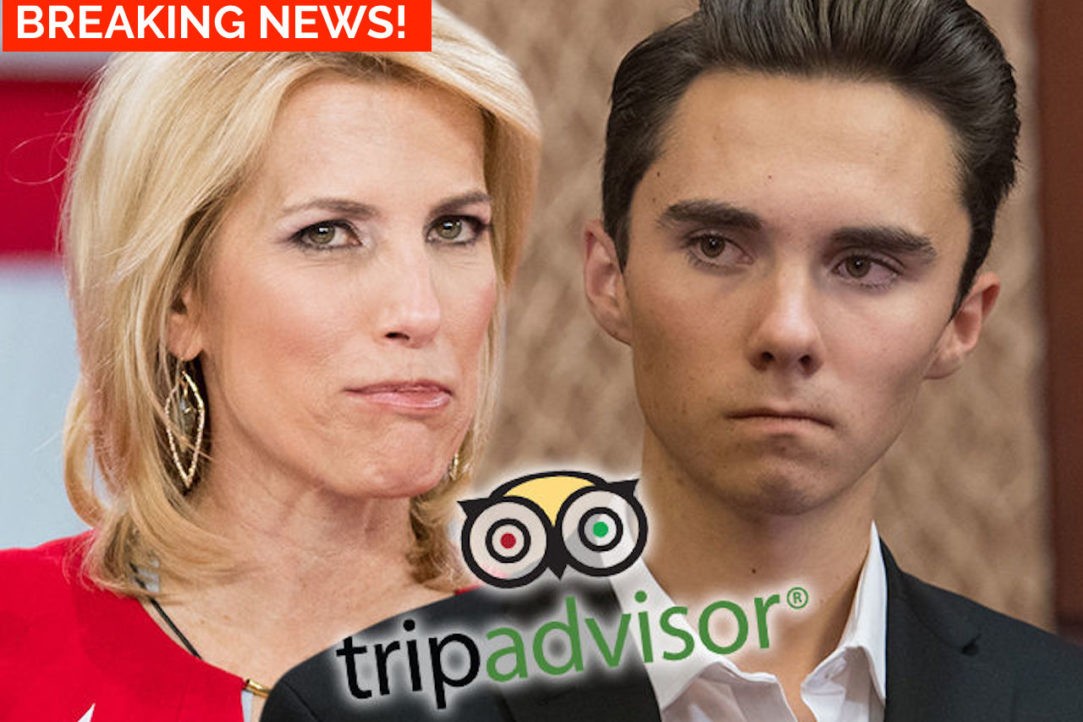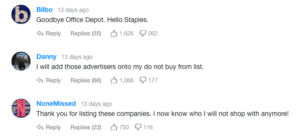
In a hyper-partisan world, companies can easily get pulled into political battles, risking alienating customers and suffering reputational damage. It’s time to assess the risks and get it on your risk radar.
For internal auditors, political risks have generally meant keeping an eye on the geo-political changes in countries where the company does business: Could China or Russia suddenly put up barriers to commerce, like tariffs or additional taxes? Could political tension in the Middle East increase the dangers of transacting there? Or could the United States enact sanctions against a country you are operating in, such as Iran or Venezuela?
Now, however, there are new political risks right here at home. Could the company get pulled into a controversy that pits right-wing conservatives against left-wing progressives? Could a negative mention in a tweet by President Donald Trump send shares of the company’s stock tumbling? Could the company be forced into taking a side on a political battle it would prefer to stay neutral on?
Companies are increasingly getting pulled into partisan political battles. The new political risks play out on social media platforms such as Twitter, Reddit, and Facebook; in advertising on political oriented talk radio shows and cable networks like Fox News and MSNBC; in perceptions by customers that the company supports left- or right-wing political causes; and many other fronts of partisan political skirmishes. These battles have the potential to cause reputational damage, alienate customers, and give rise to boycotts and protests.
Late last month, for example, companies that were airing advertising on a Fox News show, The Ingraham Angle, found out how quickly these political risks can emerge and how difficult it can be to have to declare a point of view on a thorny political issue, like gun control, immigration, or other politically sensitive social issues—issues that often have little to do with the core business of the company.
After the show’s host, Laura Ingraham, mocked one of the outspoken teenage survivors of the Parkland, Fla. school shooting, the student, David Hogg, led a campaign to call on advertisers to pull their ads from her show. Companies such as Wayfair, Nestle, TripAdvisor, Honda, Johnson & Johnson, and many others agreed and pulled ads from the show.
Many companies issued statements on the decision similar to this one that Allstate issued internally to employees on March 31: “Laura Ingraham’s comments about David Hogg were inconsistent with our values. Allstate believes in youth empowerment … We hope our youth can help us find a path to a less divisive future.”
Many supporters of Ingraham and those who opposed gun control measures perceived the decision to pull advertising as a decision to back gun control advocates and filled comment boards on articles about the incident and social media with angry reactions and promises to avoid purchasing the products and services of the companies that pulled advertising.
Greater Scrutiny of Political Positions
Of course, politically tinged product boycotts are nothing new and companies have had to navigate political issues since the dawn of commerce. But until recently most of these battles were tied directly to company practices, such as labor and union issues or civil rights matters. Today’s partisan battles are often more tangential or involve policies on topics well beyond the company’s core business practices.
“It’s only in the last few years that we have seen companies get involved in politics to the extend they are now. In fact, there was much less scrutiny on how companies were dealing with political issues just five years ago,” says Daniel Korschun, an associate professor at the LeBow College of Business at Drexel University who has researched the effects on customers and employees when companies take political positions on sensitive social issues.
Korschun says that the trend of companies wading into political waters more often is part of a larger trend of consumers, employees, and investors, asking more of companies than they have in the past. “They used to ask, as a customer, what is the quality of the product or service? Now they are asking: Who is making it? What do they stand for? What are they all about? Can I trust them?” He says there’s been a sea change in how customers interact with companies at the same time that individuals have become more polarized in their politics and more likely to make their personal politics a bigger part of their identities.
Companies Increasingly in the Crossfire
Here are just a few of the latest instances where companies were forced to take a side or were targeted by activists on either side of the political aisle for actions they took—or didn’t take—or something a corporate leader said:
- When the school shooting in Parkland, Fla. put companies’ relationships with the National Rifle Association under scrutiny, Delta Airlines joined several rental car companies and others in ending special discounts for NRA members. Along with calls from NRA members to boycott Delta, legislators in Georgia voted down $50 million in fuel tax exemptions for Delta for what they considered an “attack” on conservatives.
- Ridesharing pioneer, Uber, found itself in a similar spot when it was slow to react to January 2017 protests of an executive order by President Trump banning citizens from seven predominantly Muslim countries from entering the United States. In solidarity with protestors of the ban, New York City taxi drivers halted pick-ups of passengers at JFK airport, while Uber continued pick-ups even slashing fares, which protestors perceived as an attempt to profit on the protest. Calls to #deleteUber flooded social media. Attempts at damage control through statements by the company’s then-CEO Travis Kalanick that seemed to oppose the ban then alienated Trump supporters and sparked a backlash from the other side.
- Retailer Target may have had the most expensive foray into partisan political battles when someone at the company entered a blog post in April 2016 highlighting the company’s policy of allowing transgender customers to use the bathroom or fitting room that matched their gender identity. The blog post sparked a nationwide boycott of Target by those who disagreed with the policy and more than 1.4 million people signed a pledge to stop shopping at Target unless it reversed the policy. Some estimate that the boycott cost the retailer as much as 6 percent of sales in the three quarters following the incident. The company was also forced to spend $20 million installing single-occupancy bathrooms in many of its stores to give critics of the policy more privacy.
- In 2012 restaurant chain Chick-fil-A endured a nationwide boycott when reports emerged that the company made numerous contributions to groups that oppose same-sex marriage. Some business partners severed ties with the fast-food company, while supporters of the chain’s stance on same-sex marriage staged a “Chick-fil-A appreciation day” on August 1 of that year.
In the era of Twitter and the 24-hour cable news cycle, it can be nearly impossible for companies to maintain a neutral stance on several issues and continue to be politically agnostic as customers on both sides are seeking to enlist companies, often unwillingly, into their partisan political battles.
In many of these cases, the company didn’t have a well-considered stance on the political issues they became embroiled in and many companies are surprised to find themselves suddenly at the center of a potentially costly and damaging partisan political skirmish. With the number of these cases increasing, companies need to consider the risk and think through the consequences of such an event and how they can manage the risks ahead of time.
Not Always Good to Be Neutral
According to Korschun, striving to remain neutral on political issues isn’t always the right way to go. He says companies will be penalized when their stance on political issues or lack of one is perceived to be in conflict with their core values and what the brand has stood for in the past.
“People tend to personalize companies based on whatever interactions they have had. So politics has become a window into what people expect from the company,” says Korschun. The problem arises when a company abstains from a stand or claims to be neutral on something that consumers or employees suspect there is something more beneath the surface.” He adds that in some cases consumers will view a company that doesn’t take a stand as not being transparent, harming trust.
According to Korschun’s research, when a company behaves in inconsistent ways or when a company makes statements on political issues that conflict with other information the consumer or employee has about them, they begin to question if the company is pretending to be something it is not. “Consumers are remarkably tolerant of different views and are willing to engage with companies even if they have a different view as long as they believe the company is being forthright with them,” says Korschun.
How to Manage the Risks
One of the first things companies must do is to keep up with the issues and follow all the social media channels where consumers are discussing the issues and remarking on the company’s connection to them, whether it is a policy, a statement on a company social media outlet, or public remarks by company leaders. Companies should have a firm policy on the employees who are authorized to make public statements on company positions and who controls the company’s social media outlets.

